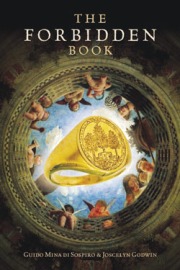 “So, I present for reflection in the end; when you seek a self initiation, what do you seek? When you state a denomination or traditional pedigree to your initiation, what are you really stating? When you state you are priest/priestess – who are you really and why did you took on this office?”
“So, I present for reflection in the end; when you seek a self initiation, what do you seek? When you state a denomination or traditional pedigree to your initiation, what are you really stating? When you state you are priest/priestess – who are you really and why did you took on this office?”
– from The Initiation of Self, Nicholaj De Mattos Frisvold
Reading Nicholaj De Mattos Frisvold’s post, The Initiation of Self, lead me to reflect on the ways that his question applies to the Alchemical Tradition. The assumption is all too often made that the Mysteries passed down by Tradition are simply a sexier way of dressing up a metaphor, some psychological template that can be assumed at will through reading a book or going through the pre-ordained motions.
Often when a seeker hits upon something they don’t understand, or finds no outlet for their search, they will take the easiest byroad that seems to fit what they are looking for. When that seeker puts on the mantle of teacher this deviation can become a recommended path, not proven by true realization, but carved well enough to trick the unwary eye.
Within alchemy this has been the standard course for centuries. Disregarding the full breadth of the Tradition many have come forward with their ‘stones’ speaking as if they had attained the Truth while never even touching it’s farthest border. From chemical chimeras to psychological sophistry the pageant of false initiation runs the entire line of imagination’s potential. For all the color in these creations they remain illusory answers that will never attain to Truth.
What happens when the image of a Tradition is not properly reflected? We are lead astray. When this straying attends to something like the nature of the Alchemical Tradition this path can be very harmful.
On the personal level a misstep in praxis can lead one down an endless and unfruitful path, when a person on this false path has the charisma, resources or support to influence society the consequences are much more dire. Today’s shortsighted scientism is an example of this problem, a problem that Isaac Newton foresaw when he warned Robert Boyle about being too bold in his experiments and impatient with revealing his results.


 “The word ‘goes’ relates to terms describing the act of lamenting at funeral rites; the mournful howling considered as a magical voice. These magical tones can guide the deceased to the underworld, and raise the dead. This is the root of the long connection of goetia with necromancy, which as come to be termed black magic.”
“The word ‘goes’ relates to terms describing the act of lamenting at funeral rites; the mournful howling considered as a magical voice. These magical tones can guide the deceased to the underworld, and raise the dead. This is the root of the long connection of goetia with necromancy, which as come to be termed black magic.”  “For Plotinus, the emanations from the One are real, including matter, though their reality is of a lower order to that of the One. While there is a soul and mind within each human, for Plotinus these also exist on a cosmic level. At a cosmic level they are in fact the two highest emanations of the One: Mind (nous) and Soul (psyche). They are divine and together with the One constitute a Triad. In the emanation of the Mind the undifferentiated state of the One is made intelligible. Soul is inferior to Mind and grasps things discursively by moving from one thing to another. Like everything else, human beings come forth from the One. Their highest aim is to return to the One. This must be done by rising above material and sensible reality first to the Mind and from there, by an ecstatic leap, to the One.”
“For Plotinus, the emanations from the One are real, including matter, though their reality is of a lower order to that of the One. While there is a soul and mind within each human, for Plotinus these also exist on a cosmic level. At a cosmic level they are in fact the two highest emanations of the One: Mind (nous) and Soul (psyche). They are divine and together with the One constitute a Triad. In the emanation of the Mind the undifferentiated state of the One is made intelligible. Soul is inferior to Mind and grasps things discursively by moving from one thing to another. Like everything else, human beings come forth from the One. Their highest aim is to return to the One. This must be done by rising above material and sensible reality first to the Mind and from there, by an ecstatic leap, to the One.”











